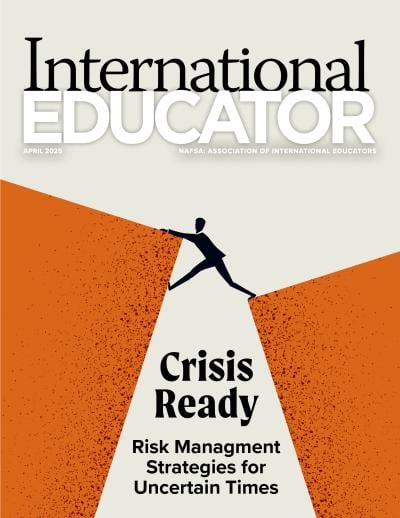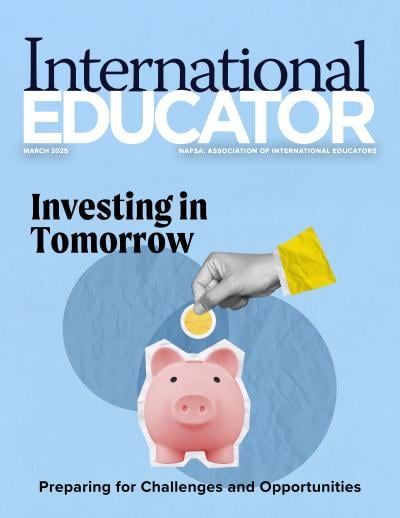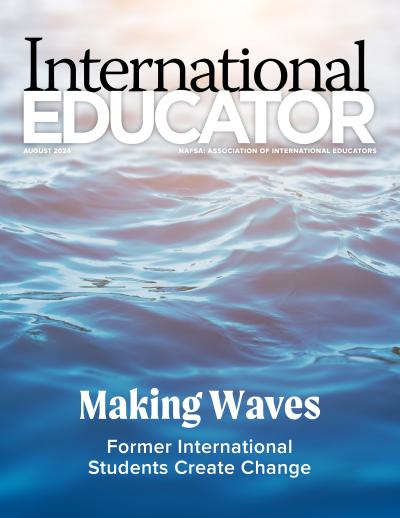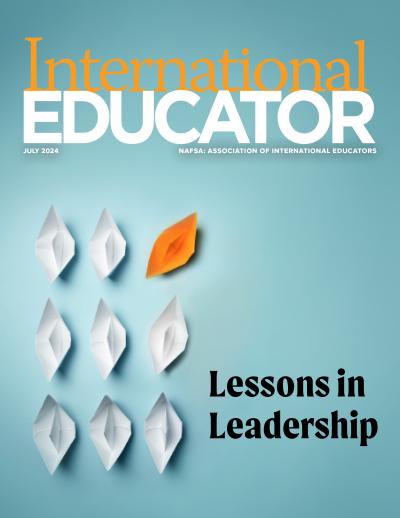From Surviving to Thriving: The Power of Razan
Editor’s note: Razan is a biologist and a science educator. She graduated from the American University of Beirut in 2017 with a bachelor of science in biology. Razan is passionate about entrepreneurship and mentors students in startup companies. She was part of the lead organizing team of two global hackathons for high schools in Kuwait City, Kuwait, where she is based.
Between sips of coffee at our favorite cafe, taking in the warmth of our java along with the flaming heat of Kuwait, Jad and I discuss our upcoming summer vacation plans in our home country of Lebanon. I lament the unreliability of electricity in Beirut and how I anticipate the inevitable struggle. My daily routine will be at the discretion of the Ministry of Energy. No enjoying morning walks with Dad as we used to. Connecting and reconnecting with neighbors akin to family on afternoon strolls with Mom will be limited, if at all. Daily planning for tasks such as grocery shopping, showers, laundry, ironing, and all other errands must align with the capricious whims of those manning the electricity schedule.
Jad and I continue to sip from our cups. In his hometown of Sehayleh, a 45-minute drive northeast of my hometown of Beirut, electricity runs 24/7—supplied not from the government, but private generators. Just like most Lebanese households, both of our families have private generator subscriptions. In larger cities, there’s a limit placed on private generators, allowing usage for only a few hours a day. This small detail gives birth to a world of difference in experience that neither Jad nor I had fully registered. This conversation revealed to us a new layer of understanding about our own country. We were stunned at our differences even though we shared so much.
A Journey of Adaptation
Lebanon is small, sizing up at about 6,500 square miles—roughly the size of New Jersey. Within this small geographical container exists astounding and vast variation. Numerous cultures coexist together, breathing the same air, drinking the same water, and viewing the country from innumerable perspectives. With a heritage as old as mankind and a culture that emerged from many civilizations, Lebanon has a cosmopolitan character and a multicultural legacy.
It’s a small country not without its struggles; conflict has been somewhat constant, especially in the 20th century, from sources both within and outside its borders. In those wars, no one won, and Lebanon bears the scars. No matter what side of the war the Lebanese found themselves on, they all faced fear, violence, anger, mistrust, and heartbreaking grief. I grew up in a country with these scars, but the skills that I inherited as a result prepared me for the future ahead.
One thing Lebanese have in common, regardless of our differences, is devotion to family. This devotion creates a sense of safety, inclusion, and unity. Devotion, in addition to the concept of filial piety, gave me the advantage of spending a good amount of my childhood and teenage years with my grandmother. Now that I moved out of the country, one thing I look forward to every summer is spending time with her. My grandma's story inspires me. She survived brutal wars in the 80’s. She never backed down or trembled in the face of danger. Her story taught me how to withstand pressure and function under extreme conditions. It reminds me that I come from a family of strong women who do not give up easily. My grandma passed on her legacy to my mother and me and I honor her courage and love.
In Lebanon, tension goes dormant, but it’s always there. As a third generation Lebanese, the events in my life may have been different but the stress I experienced is the same as my elders.This led to lack of motivation, difficulties in concentration, and general frustration. I vacillated between over and under stimulation. I was either hyper aroused or felt complete numbness. Staying on track and focusing on my goals in survival mode felt impossible. However, being in a long lineage of survivors, like my grandmother, who had mastered the art of adaptation and transformation, I transmuted my hardships into leverage. Facing difficulties and overcoming it ran in my blood, and the support and wisdom of my parents fortified me with love and strength. They kept me out of the political scene in Lebanon to avoid distraction, and they prioritized education. They recognized this as the way to not just survive, but flourish. Their investment in their children and education equipped me with the necessary tools to maneuver life in Lebanon with ease and flexibility.
Education As a Safe Haven
Despite periodic conflict, Lebanon offers high-quality educational opportunities. I was blessed to study at the American University of Beirut (AUB), one of the leading universities in the Middle East. Getting into AUB was difficult. I had to stand out among thousands of applicants by maintaining a high GPA with well-rounded extracurriculars. Staying at AUB also was not easy, as my father lost his job my sophomore year. Thankfully with my partial scholarship, my part-time jobs, the support of one of my AUB professors, and my dad's insistence on spending his savings on his children’s education, I remained on the path I had started.
In a country and city that experiences constant change, AUB provides students with a secure environment—a safe haven. In addition to the education and security, the active social life at AUB helped keep our spirits high. This social and moral support was an integral part of my growth and gave me additional tools to thrive.
I never thought I could possibly focus on education given the circumstances. But when life got tough, I closed my eyes and imagined the details of the future I wanted. The alternative was discouraging. I planned how to achieve my goals and considered what I’d need to do on a daily basis to move toward and embody my vision. I followed my plans religiously. Whenever I faced a roadblock, I decided I had two options: Remove the block, or take a detour. Discerning the difference was initially unrecognizable, but with time, experience, and intention, I got better at deciding my way forward. It was like sitting and watching a movie, except I am the director and main actor.
I have not achieved all my goals, but I’m moving in a direction that’s not a place but a way of being. I am living the life I wanted for myself and I am satisfied and proud of my progress and evolution. Better yet, my parents are proud of the woman I've become and that is the greatest reward for me. It fills my heart with joy to see my parents happy that all their sacrifices did not go in vain.
I too, am filled with hope for my country to see that in spite of all the divides, Lebanese people across the globe still stand up for a transformation of Lebanon's political and social system. My friend Jad, myself, and all the Lebanese diaspora in our community in Kuwait are united in our love for Lebanon. A love so big, so unconditional, and so sincere, that our intention to make things better for ourselves and our country outweighs the habituated tendencies to fall back into patterns of trauma and survival. We must find our way out to heal.
Reconnecting with My Roots
While I initially lamented to Jad about the unreliability of electricity in Lebanon, now that I’m here, I move into my summer break with the intention of reconnecting to my home country. From north to south, from east to west, I want to learn more and more every day about our different perspectives and celebrate these differences. I’m committed to exploring and understanding the whys and the hows, as it helps me to be more compassionate in my relationships and in navigating the frustration within my country. I see beauty and wonder emerge through pain and suffering, and there is so much of the latter in Lebanon’s stratified history and in the current worrying state of affairs.
Again, I find myself at a crossroads as I move forward in my life: remove the roadblock or make a detour? And then I see that there’s a third way. This block is there for me to climb it. I’m able to do that now. I have strength and balance. Just as my family passed on their wisdom and love for myself and the greater good, I too can pass on my teachings and my style of adaptation to the coming generations who are still finding their way. •
About International Educator
International Educator is NAFSA’s flagship publication and has been published continually since 1990. As a record of the association and the field of international education, IE includes articles on a variety of topics, trends, and issues facing NAFSA members and their work.
From in-depth features to interviews with thought leaders and columns tailored to NAFSA’s knowledge communities, IE provides must-read context and analysis to those working around the globe to advance international education and exchange.
About NAFSA
NAFSA: Association of International Educators is the world's largest nonprofit association dedicated to international education and exchange. NAFSA serves the needs of more than 10,000 members and international educators worldwide at more than 3,500 institutions, in over 150 countries.
NAFSA membership provides you with unmatched access to best-in-class programs, critical updates, and resources to professionalize your practice. Members gain unrivaled opportunities to partner with experienced international education leaders.











